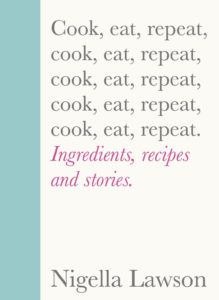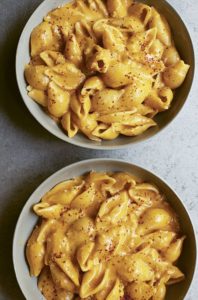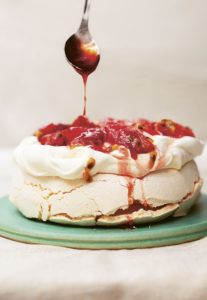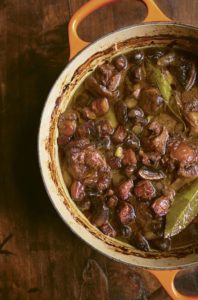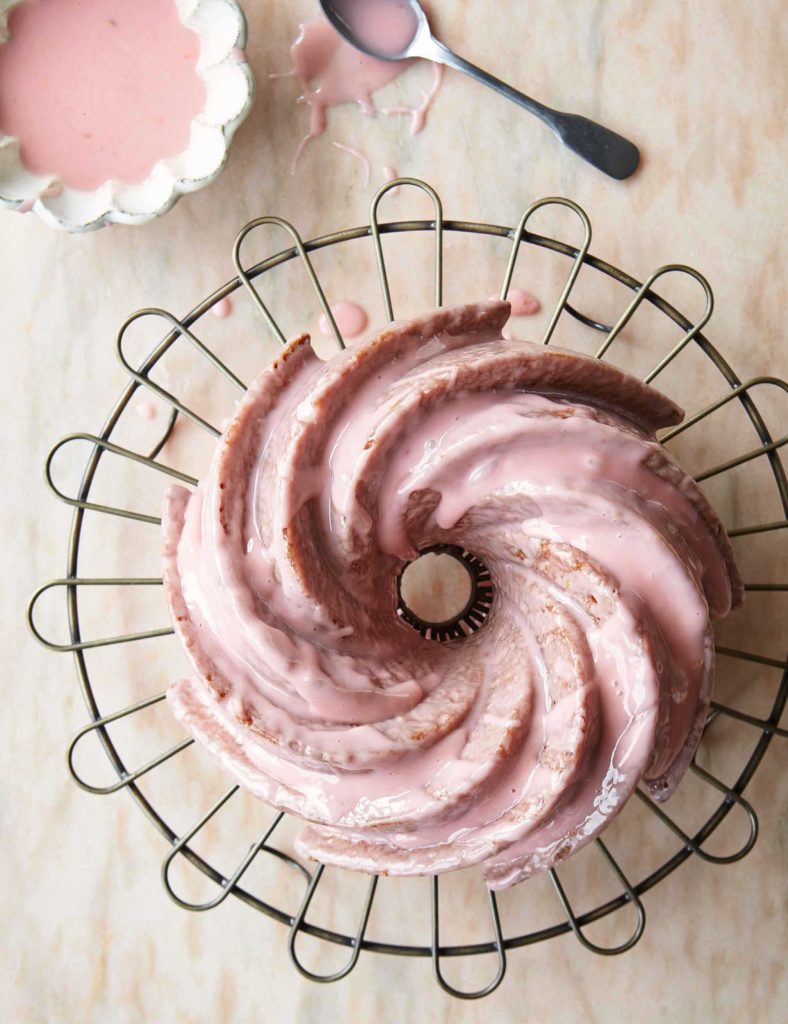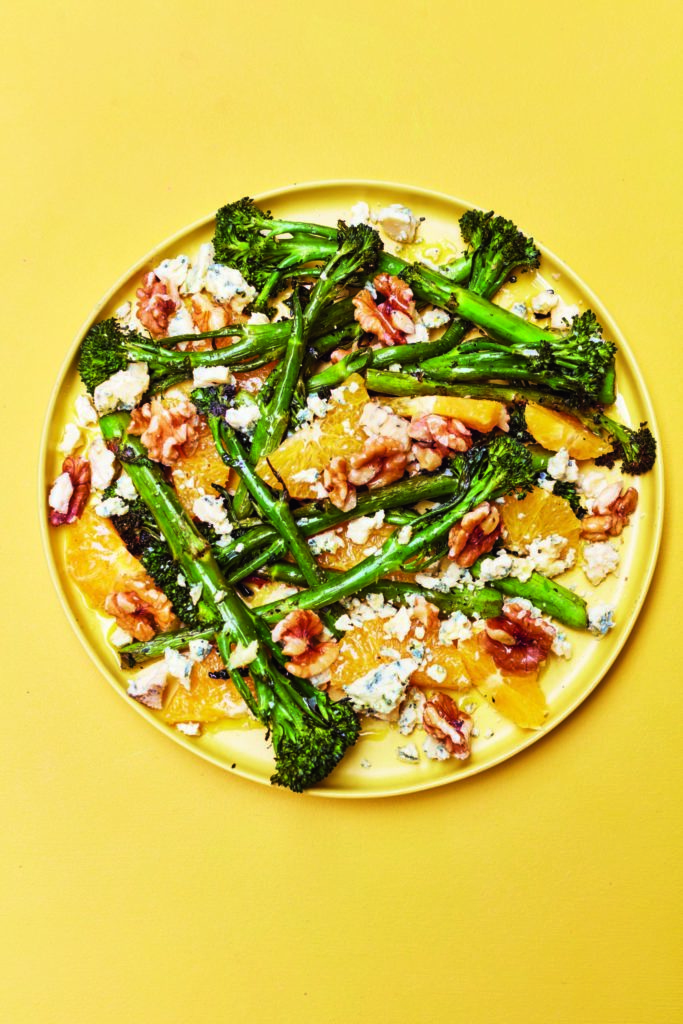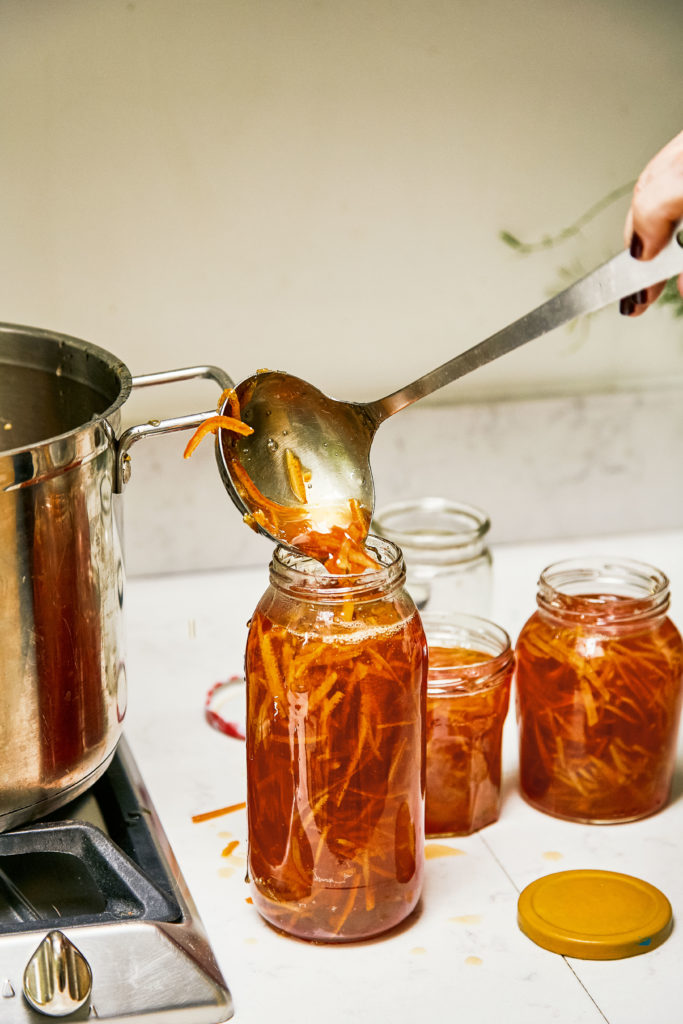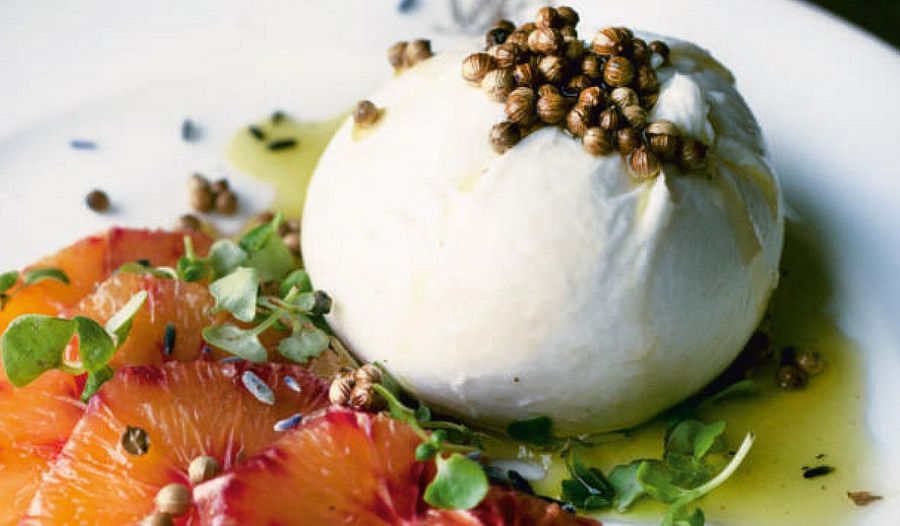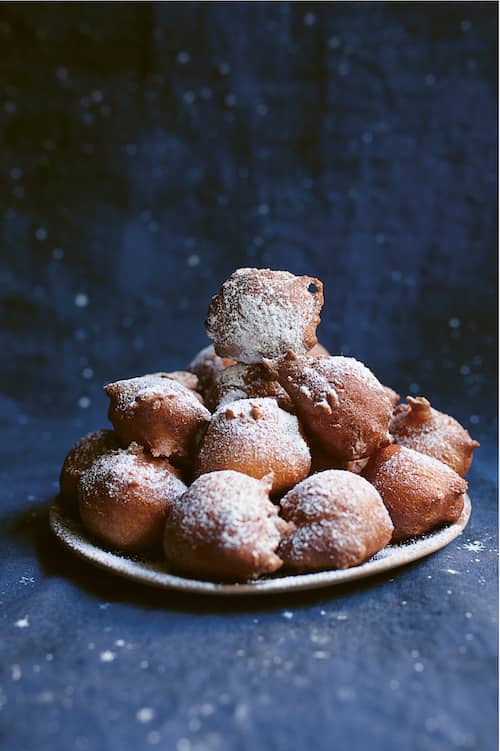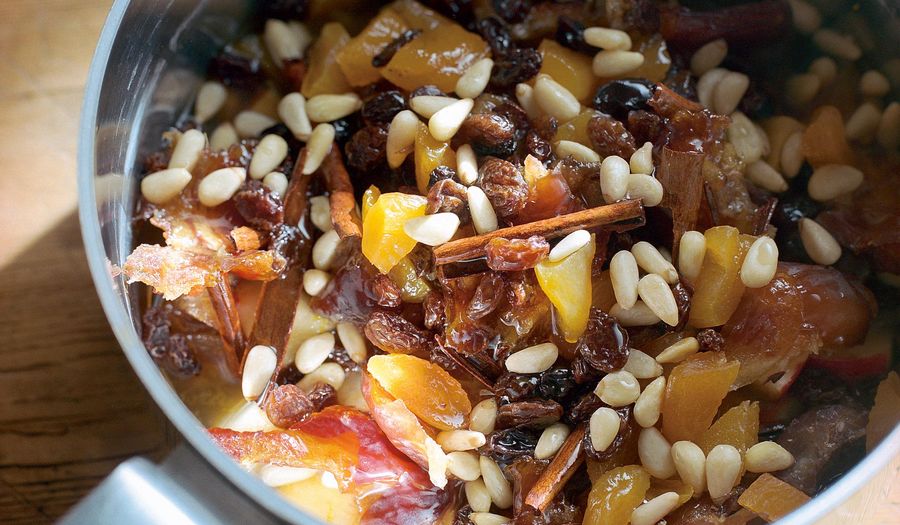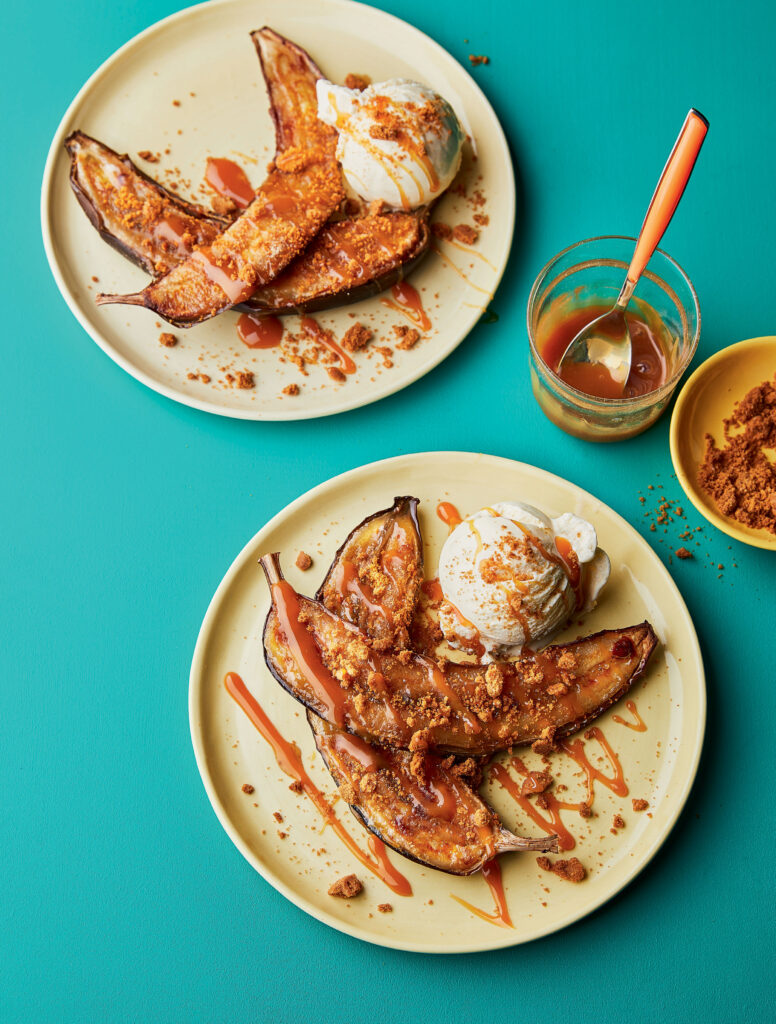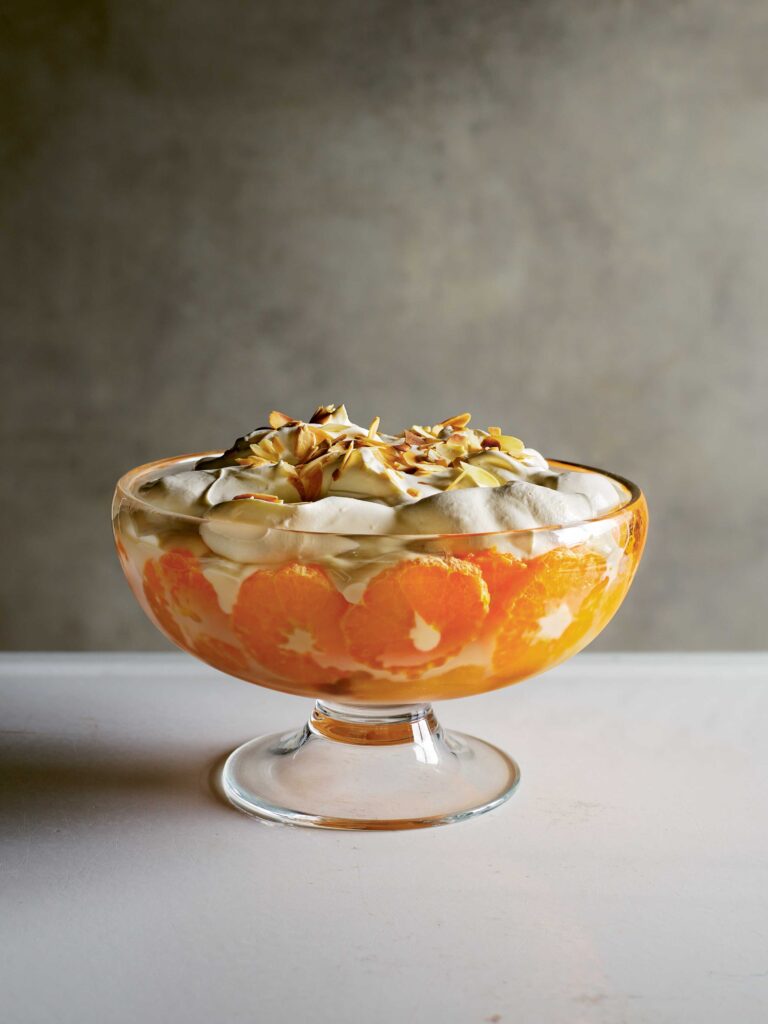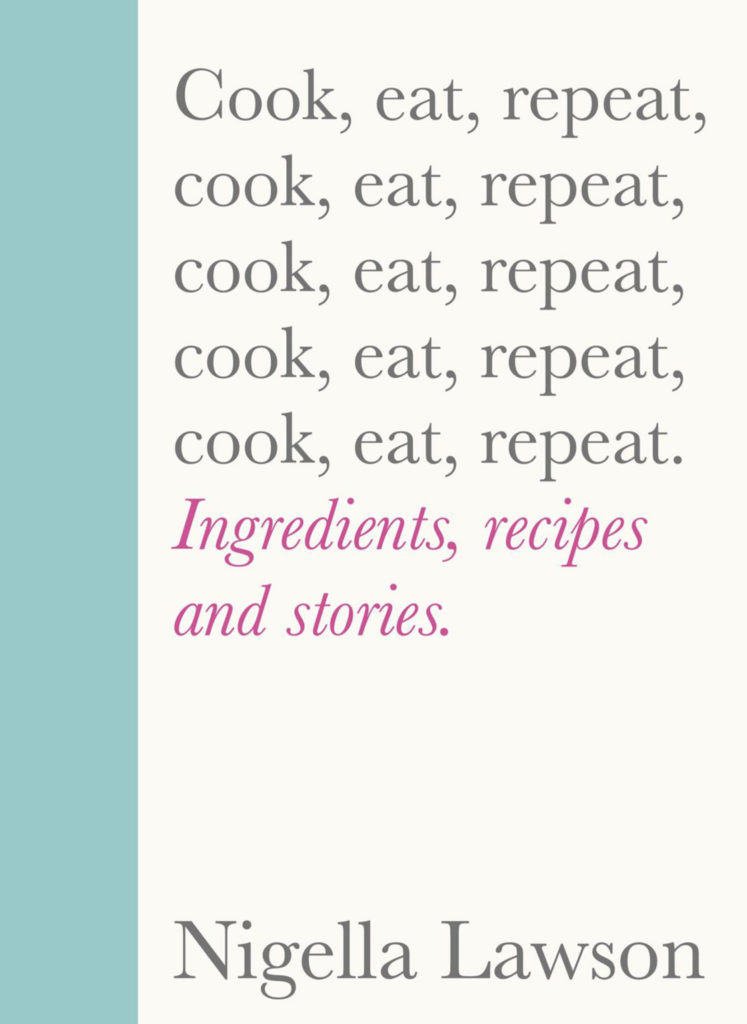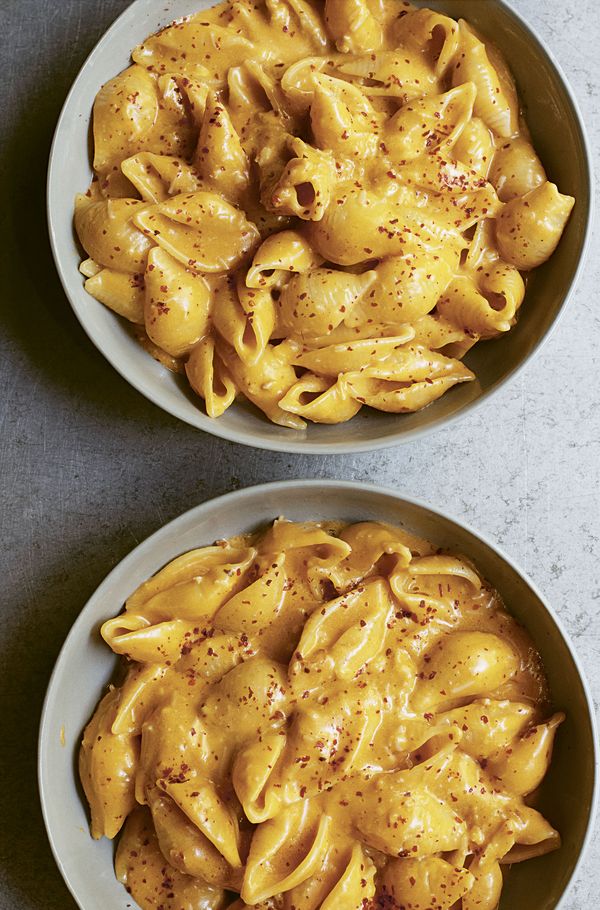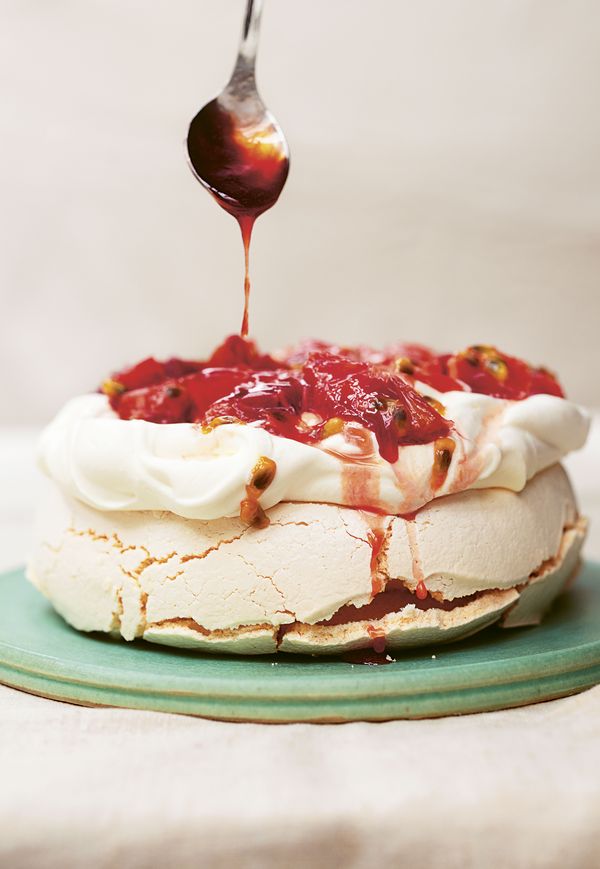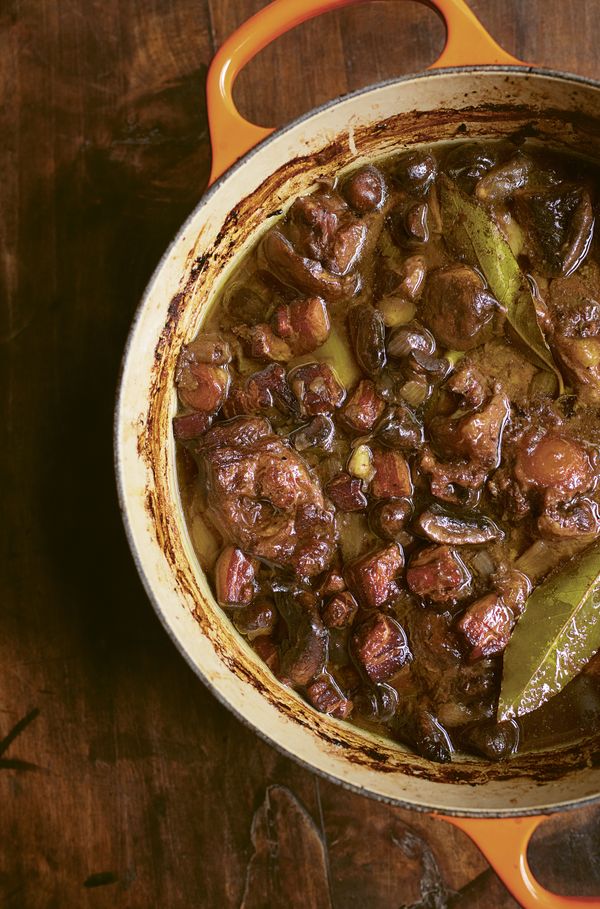Nigella Lawson’s Blood Orange and Passionfruit Pavlova
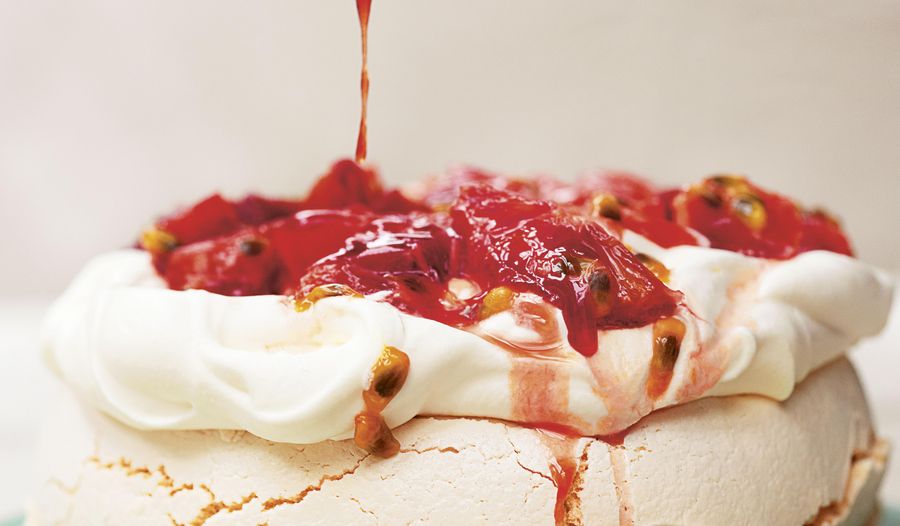
Celebrate winter fruits with this easy but impressive Blood Orange and Passionfruit Pavlova from Nigella Lawson's Cook, Eat, Repeat.
From the book
Introduction
If you’re offered pudding in my house, there is a very high probability that it will be a pavlova. I am always ready to whisk up egg whites and bake them into crisp-edged, tender-bellied meringue, to be topped with softly whipped cream and sharp fruit.
I will, on occasion, forgo the fruit – for example in my cappuccino pavlova, where I add coffee to the meringue, and just a dusting of cocoa to the cream, or my lemon pavlova, which calls for curd, cream and toasted flaked almonds – but if added, it’s vital that it balances the sweetness of the meringue base. Thus, I advise you, when blood oranges are not in season, against using ordinary eating oranges, which are too sweet to convey that crucial contrast. Instead, just double the amount of passionfruit, to make the pure perfect pavlova that made me fall in love with this pudding in the first place; though a grapefruit might indeed be a fierce enough substitute.
A quick note on the syrup: you don’t absolutely need to add the orange zest to the juice, since you strain it out, but it seems a pointless waste not to. It boosts the flavour and deserves more than to end up in the bin. (If you’re going for grapefruit, though, omit it.) It is a glorious concoction: if you don’t have time or energy to make a pavlova, know that it is wonderful simply drizzled over good shop-bought vanilla or chocolate ice cream or, indeed, the No-Churn Cheesecake Ice Cream (on p.235 of Cook, Eat, Repeat).
Known in my house as the Petite Pavlova, this is perfect when there’s only two of you. It will certainly stretch to four without disappointment, but is a divine dessert when you’re dining à deux.
And with the two egg yolks that this leaves you with, you can make a Crème Caramel (or indeed Crème Brûlée) for one (see p.87 of Cook, Eat, Repeat).
Ingredients
| For the base: | |
| 2 | large egg whites, at room temperature |
| A pinch of | fine sea salt |
| 125g | caster sugar |
| 1 tsp | cornflour |
| ½ tsp | white wine vinegar |
| For the syrup: | |
| 3–4 | blood oranges |
| 50g | caster sugar |
| For the topping: | |
| 2–3 | blood oranges |
| 150ml | double cream |
| 1–2 | passionfruit to give about 50ml (pulp and seeds) |
Method
1. Heat the oven to 180ºC/160ºC Fan. With a pencil, draw a 15cm diameter circle on a piece of baking parchment. Use the parchment to line a baking sheet, putting it pencil-side down.
2. Whisk the egg whites and salt in a grease-free bowl until satiny peaks form, and then beat in the sugar a spoonful at a time until the meringue is stiff and shiny. The trick to getting the meringue properly thick but still smooth and shiny is to whisk fast and furiously but add the sugar slowly and serenely. Sprinkle over the cornflour and the vinegar. Then gently fold them in.
3. Mound the meringue mixture onto the baking sheet inside the outline of your circle, and smooth it patiently to the edges until you have a thick, straight-sided, flat-topped disc, rather like the crown of a boater.
4. Place in the oven, then immediately turn the temperature down to 150ºC/130ºC Fan and cook for 40 minutes. Leave the pavlova to cool in the switched-off oven, with the door ajar to let out the residual heat. If you take the pavlova out too soon the base will crack and collapse, so it’s best to apply this gentler cooling-down method.
5. To make the syrup, finely grate the zest from 2 of the blood oranges into a small saucepan – I use one of 14cm diameter. Squeeze the 3–4 oranges until you have 150ml juice, and add to the saucepan, along with the sugar. Give everything a good stir, then heat the pan until boiling, and let it boil for 5 minutes. Strain the syrup into a small heatproof measuring jug, and I implore you not to throw this zest away but eat it, just with a tea-spoon; it tastes like fresh essence of marmalade. Pour the syrup back into the pan, keeping the jug to hand, and continue boil-ing for about another 6 minutes or so until it has thickened and reduced to about half the volume, leaving you with 75ml. Leave to cool in the measuring jug.
6. Now prepare the topping. With a small serrated knife, slice off the top and bottom of 2–3 blood oranges so that they sit flat on a board, then working from top to bottom, cut the peel and pith away from the rounded sides to reveal the flesh. Turn each orange on its side and slice into circles, and then cut some of those circles into smaller segments so you have a mixture of flower and petal shapes. Put the orange pieces in a bowl, or if you’re not eating the pavlova the same day, seal in an airtight container.
7. When you’re ready to eat and the pavlova base is cold, turn it onto a flat plate with the underside uppermost; this is so the tender marshmallow belly of the meringue melds with the soft topping.
8. Whip the cream until thick and airy but still soft, and spread on top of the pav base in a swirly mound, working the cream all the way to the edges so that it is evenly covered.
9. Halve the passionfruit and scoop the pulp onto the cream, then spoon over the orange pieces, letting the juice from both fill the swirls and dribble a little down the sides of the pav. Give the syrup a good stir and then drizzle a little over the top, pouring the rest into a dolls’-house-sized jug to serve alongside. If you don’t have a jug small enough, pour it into an espresso cup with a coffee spoon on the saucer.


